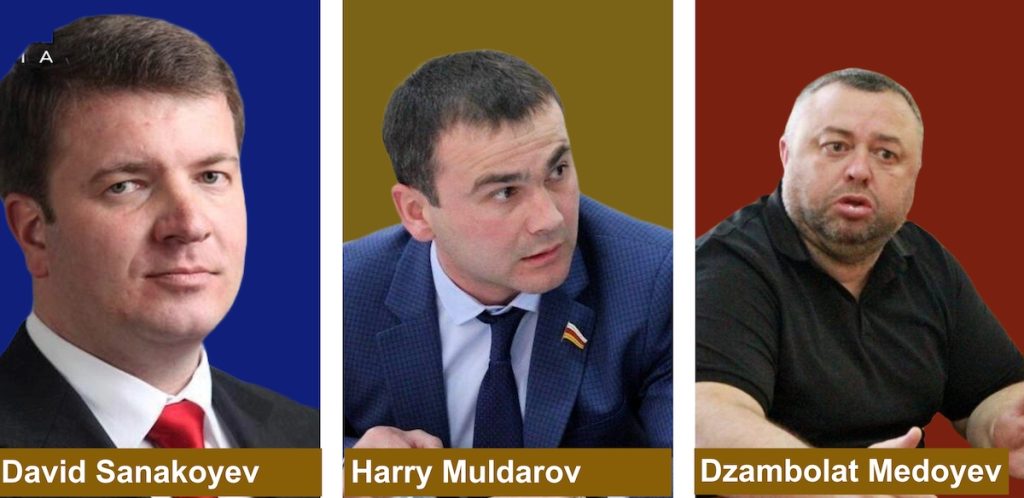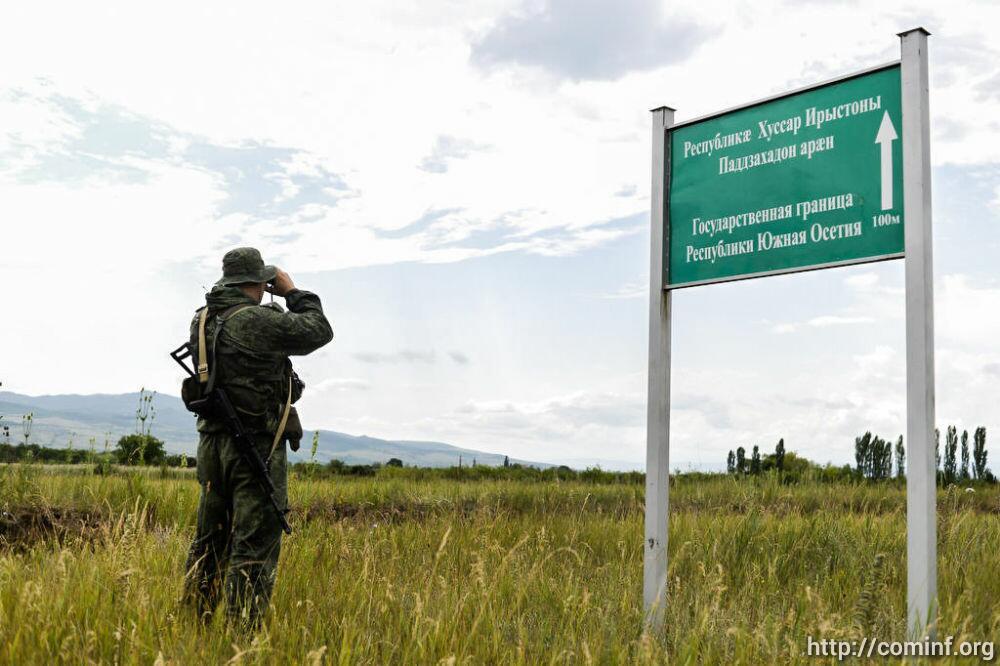South Ossetian deputies blame 'Georgian lobby' for loss of Russian citizenship
South Ossetian deputies lose Russian citizenship
Tension is rising in South Ossetia between President Alan Gagloyev and former supporters from the parliamentary opposition. Three parliament deputies, David Sanakoyev, Harry Muldarov, and Dzambolat Medoyev, who supported Gagloyev in the 2022 presidential elections, now accuse him of involvement in depriving them of their Russian citizenship.
They claim this happened after they initiated a proposal to “restore the borders with Georgia to the 1922 format” and claim an increase in pro-Georgian activity in South Ossetia.
Since South Ossetia is a partially recognized republic, its passport has little international validity. Therefore, most of its population holds a second, Russian citizenship. Losing it means losing many benefits, including the ability to travel worldwide.
The map that led deputies to conflict
Deputies David Sanakoyev, Harry Muldarov, and Dzambolat Medoyev were deprived of their Russian citizenship in early February 2024 by a decision of the Federal Security Service (FSB) of Russia.

The three South Ossetian deputies lost their Russian citizenship due to their initiative to revise the border between South Ossetia and Georgia, suggesting a return to the borders set in 1922.
In 1922, the South Ossetian Autonomous Region was established within the Georgian SSR. During the Soviet Union’s existence, the administrative borders of this autonomy were revised several times.
In 2008, Russia recognized South Ossetia’s independence from Georgia within the borders of 1990, which make its territory slightly smaller than in 1922. Some South Ossetian politicians, including the mentioned deputies, believe that this line should be drawn as it was in 1922.
However, Russia believes that it’s better to refrain from further territorial disputes in the current circumstances.
Georgia and the international community do not recognize this border and consider South Ossetia part of Georgian territory.
The deputies Sanakoyev, Muldarov, and Medoev explained that their proposal was perceived in Russia as “actions leading to increased tension near Russia’s borders,” but the specifics of these actions were not mentioned.
According to the deputies, Russia is trying to avoid escalation with Georgia.
Events unfolded on March 28 when they were denied entry into Russia even with their South Ossetian passports, recognized by Russia since 2008.
In the document issued to them, it states that they are prohibited from entering Russia until March 18, 2049. It is explicitly mentioned that even in the event of a change in surname, name, or other personal information, they will not be granted the right to enter Russia.
Deputies were provided with a notification from the Border Control Department of the FSB in North Ossetia, explaining that entry into Russian territory may be prohibited “if necessary to ensure the defense capability or security of the state, or public order.”
The next day, on March 29, Harry Muldarov got into a fight with a deputy from the People’s Party, Robert Ostaev, in the parliament building. It’s unclear what caused the fight, but presumably, it was related to the same issue – whether to raise the question of returning to the 1922 maps.
- “Moscow insists that South Ossetia refrain from provoking Tbilisi” – Opinion
- Why “easy access” won’t make life easier for farmers in South Ossetia
- Russian military kills Georgian citizen, Tbilisi demands international response
In the past, when they were opposition members, all three of these deputies, along with Alan Gagloyev, harshly criticized the then-President of South Ossetia, Anatoly Bibilov, for “handing over the village of Tsnelis and 200 square kilometers of South Ossetian land to Georgia.”
These accusations, along with other factors, helped Gagloyev prevail over Bibilov and become president. However, once in the presidential seat, Gagloyev didn’t rush to reclaim those square kilometers. Moreover, he removed the topic of “sold territories” from the agenda and generally prohibited mentioning territorial disputes with Georgia.
Former allies, dissatisfied with this, reminded him of his pre-election promises and asked for clarification on the situation, but instead of a response, they were accused of provocation.
Who’s to blame: “Georgian lobby” or the South Ossetian president?
David Sanakoyev blamed “pro-Georgian lobby in South Ossetia” for losing his Russian citizenship.
“I connect this with the warming of Russian-Georgian relations and the work of the pro-Georgian lobby in South Ossetia. My colleagues and I will defend our rights through all legal means and as publicly as possible,” says Sanakoyev.
The three deputies have already tried to challenge the decision to revoke their citizenship in Russian courts, but their lawsuits were rejected.
“I believe that the court simply doesn’t want to participate in a case that has already turned into a political scandal and attracted the attention of federal media,” Sanakoyev believes.
At the same time, Sanakoyev, Muldarov, and Medoyev are convinced that President Alan Gagloyev is behind all this. They believe that he is plotting intrigues, spreading disinformation, and portraying their activities as “anti-Russian” to discredit competitors ahead of the parliamentary elections scheduled for June 9, 2024.
Sanakoyev hasn’t given up hope of regaining his citizenship through the courts. The deputies once again demanded an answer from Alan Gagloyev, but this only led to arguments and mutual accusations in parliament.
Toponyms, terminology, views and opinions expressed by the author are theirs alone and do not necessarily reflect the views and opinions of JAMnews or any employees thereof. JAMnews reserves the right to delete comments it considers to be offensive, inflammatory, threatening or otherwise unacceptable



















